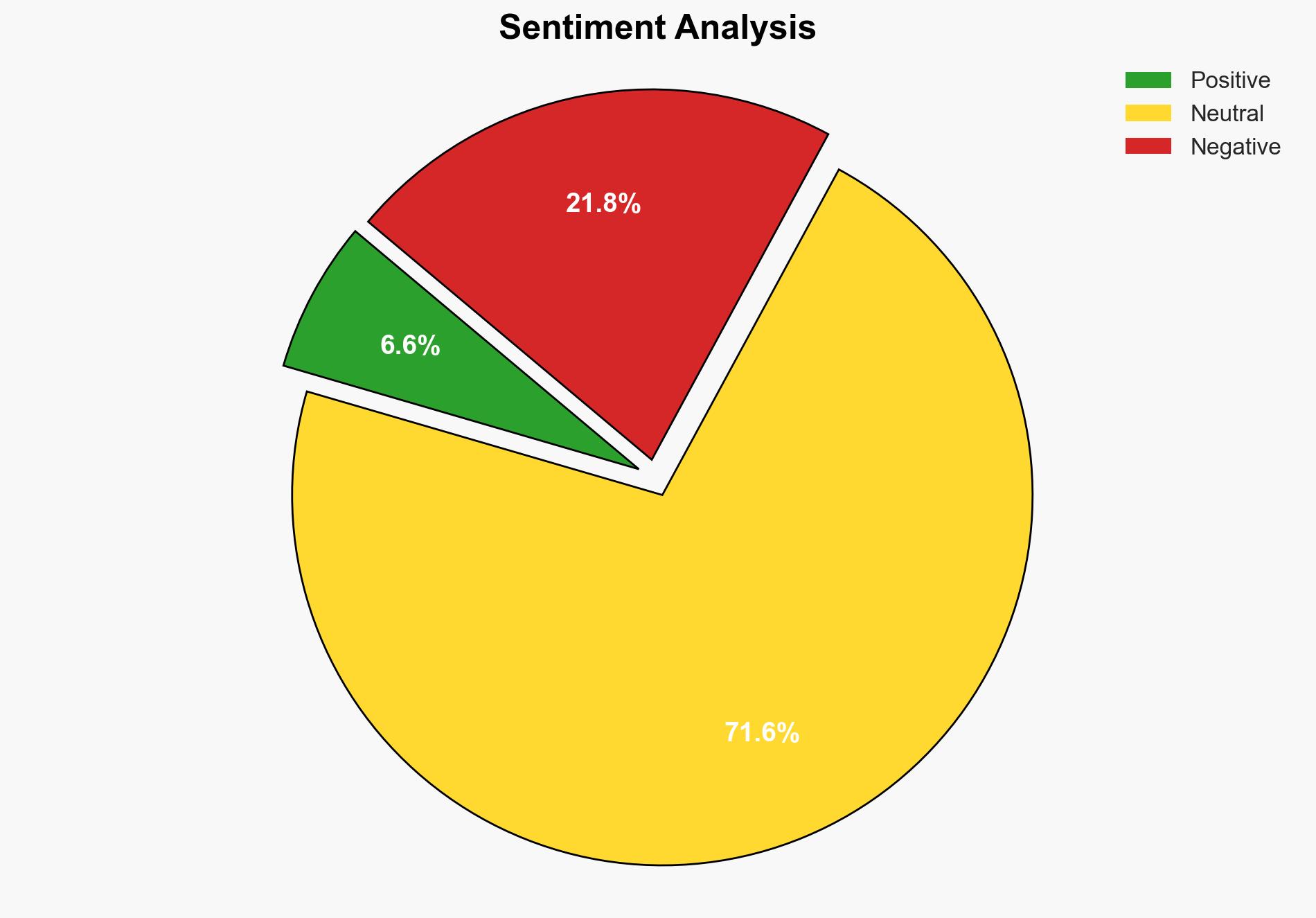WFP Says Funding Shortfall Forces It To Cut Food Aid To 1 Mn People In Myanmar – International Business Times
Published on: 2025-03-14
Intelligence Report: WFP Says Funding Shortfall Forces It To Cut Food Aid To 1 Mn People In Myanmar – International Business Times
1. BLUF (Bottom Line Up Front)
The World Food Programme (WFP) is forced to cut food aid to one million people in Myanmar due to a critical funding shortfall. This reduction in aid comes amidst ongoing civil unrest and economic instability in the region. The funding gap is primarily attributed to reduced international contributions, notably from the United States. The cuts will significantly impact vulnerable populations, including children, pregnant women, and the disabled, particularly in conflict-affected areas like Rakhine State. Immediate international intervention is required to prevent a humanitarian crisis.
2. Detailed Analysis
The following structured analytic techniques have been applied for this analysis:
General Analysis
The WFP’s decision to cut food aid is a direct consequence of a $1 billion budget shortfall. The situation in Myanmar is exacerbated by ongoing civil conflict following a military coup, leading to a complex humanitarian crisis. The reduction in aid is expected to worsen food insecurity, with millions already unable to meet daily nutritional needs. The cuts coincide with the lean season, further threatening food availability. The lack of funding from traditional donors like the United States, influenced by recent policy changes, has left the WFP unable to maintain its previous levels of assistance.
3. Implications and Strategic Risks
The reduction in food aid poses significant risks to regional stability and security. Increased hunger and displacement may lead to heightened tensions and conflict, further destabilizing Myanmar and potentially spilling over into neighboring countries. The economic impact is also profound, as food insecurity can hinder workforce productivity and exacerbate poverty. Additionally, the cuts may damage the reputation and effectiveness of international humanitarian efforts, undermining trust in global aid organizations.
4. Recommendations and Outlook
Recommendations:
- Encourage international donors to increase contributions to the WFP to address the funding shortfall.
- Implement diplomatic efforts to stabilize the political situation in Myanmar, reducing barriers to aid distribution.
- Explore alternative funding mechanisms, such as public-private partnerships, to support humanitarian initiatives.
Outlook:
Best-case scenario: Increased international funding and successful diplomatic interventions stabilize the situation, allowing the WFP to resume full operations and mitigate the humanitarian crisis.
Worst-case scenario: Continued funding shortages and political instability lead to widespread famine and displacement, exacerbating regional tensions and economic decline.
Most likely scenario: Partial funding recovery allows for some restoration of aid, but ongoing conflict and economic challenges maintain high levels of food insecurity.
5. Key Individuals and Entities
The report mentions significant individuals and organizations, including Donald Trump, Elon Musk, and Michael Dunford. The primary organization involved is the World Food Programme (WFP).





